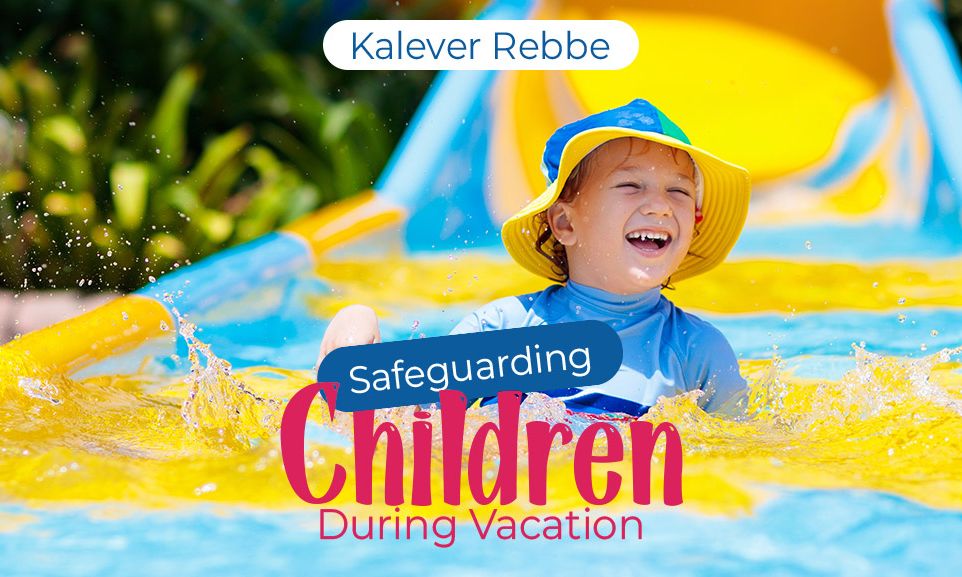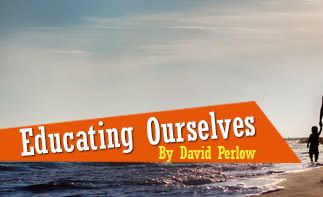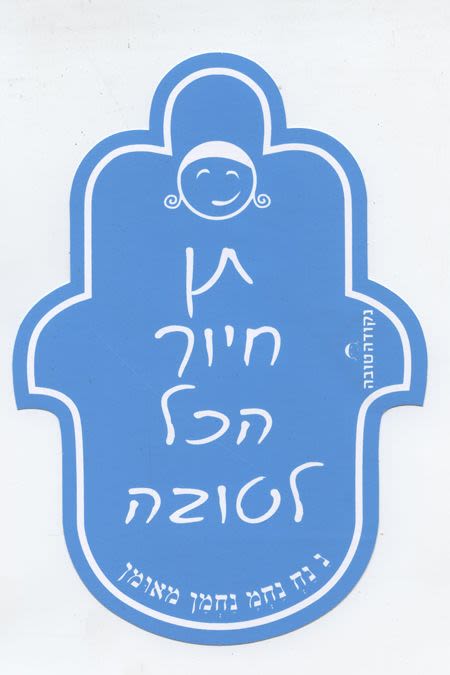
Safeguarding Children During Vacation
Watching over one's children is the first and most critical element to ensuring future generations of committed Jews. This is especially true during summer vacation.

“Reuben, Israel’s firstborn”. (Bamidbar 26:5)
Whenever children are not in their Torah institutions (yeshiva and school), such as in the evening, on Shabbat and Yom Tov, or during vacations, parents need to be extremely diligent in watching over them. They need to know where they are and whom they are with.
It is natural and common for parents to say, “My child is strong. He knows what he can and cannot do. Nothing will be able to influence him.” However, no one can know that for certain. Even good children can be influenced by a group of ill-behaved friends.
This is especially true nowadays when – using various technologies – it has become even easier to connect with strangers. With our own eyes we have seen boys from very prestigious homes, well educated, who were completely ruined by these outside influences.
Spiritual Dangers
Parents constantly try to protect their children from physical danger. Even more so, parents need to try and safeguard their children’s spirituality. As Chazal taught (Tanchuma, Pinchas, 3), making a person sin is worse than killing him.
There have been tremendous tzaddikim who, despite being involved with the concerns of the greater Jewish people, always kept a close watch on their own children. Some even found it necessary to leave explicit instruction in their wills.
R’ Shalom Ber, the Rashab, from Lubavitch, zt”l, in the first paragraph of his will to his Rebbetzin, wrote: “Regarding our son, I ask that you watch over him in all matters. Currently, he needs even more watchfulness. Most importantly, you need to watch to ensure that he doesn’t make friends with boys who have abandoned the yoke and fear of Heaven and who spend their time with emptiness and recklessness, which can lead – God forbid – to bad character traits and thoughts, by speaking of things that boys didn’t even used to know about”.
You must educate children from the youngest age – with pleasantness and without pressure – to always ask their parents’ permission before they go somewhere. When a child is raised this way, they will feel positive about this supervision, even if it at times is limiting. He grows up feeling that he has parents who love and worry about him.
Check on Your Children
It is also important for parents to commit the time to having conversations with their children, at least once a day, and to simply ask them: what did you do today? This process not only strengthens the bond between the parent and child, but also allows the parent to see if there is something that needs to be addressed and worked on.
The Gemara teaches (Chulin 105a) that Shmuel said that he was worse than his father. His father would check on his possessions twice a day and Shmuel only did so once a day. R’ Chaim of Brisk, zt”l, explained, that one’s children are the most important possession a person has, so that Shmuel anguished over the fact that his father would check on his children twice and he only did so once.
Even after all the hard work, parents still need a tremendous amount of Heavenly help to ensure that their children do not befriend the wrong crowd. However, if the parents do everything they can, if they make every effort, and they also daven to Hashem with the proper intent when they say, שתצילני היום ובכל יום מחבר רע ומשטן המשחית- may you save me today and every day from an evil friend and the corrupting Satan, then they will merit Heavenly help.
The Important Weapon
At the very least, a father must make sure that his son schedules time to learn even when there is a break from school. Learning Torah is the only definitive way to defeat the Yetzer Harah as Chazal taught, “I created the Yetzer Harah and the Torah as the antidote. If you busy yourself with learning Torah, you will not fall into the hands of the Yetzer Harah.” (Kiddushin 30b)
Therefore, when children are given time off from school but are not required to study Torah at all, it is a grave injustice, and they are being put at risk. As Chazal taught (Shabbos 119b) that Jerusalem was only destroyed because the school children were interrupted. The Maharsha explains that this transgression continues today when children are given time off from school without set times for Torah study.
See the Son!
Perhaps this is alluded to in the name “Reuven ben Yaakov” and his four descendants: Chanoch, Falu, Chatzron and Carmi.
The Hebrew name of Reuven can be broken down into two Hebrew words: R’u Ben – ראו בן, which means “see the son”. You must always see what your children are doing.
Chanoch is the same root word as Chinuch, education. Falu has the same letters as Aluf which is another word for learning. Chatzron alludes to the vacation times when people leisurely linger around the courtyards. And Carmi is representative of a yeshiva which is referred to as Kerem in Chazal (Brachot 63b). The pasuk can read that when someone “sees” and watches over their children, the outcome is that they will learn Torah both during the times when they have breaks and they are in school.
This is what the pasuk means here when it says, “Reuben, Israel’s firstborn”…Watching over one’s children is the first and most critical element to ensuring future generations of committed Jews, of Bnei “Yisroel”. Yaakov’s name was changed to Yisroel after defeating Eisav and his army of 400. As the pasuk says (Bereishit 32:29), “And he said, “Your name shall no longer be called Jacob, but Israel, because you have commanding power with [an angel of] God and with men, and you have prevailed.” So too, a father who watches over his son will merit to have a child who can defeat and overcome the spiritual dangers in his life.
***
The Kalever Rebbe is the seventh Rebbe of the Kaalov Chasidic dynasty, begun by his ancestor who was born to his previously childless parents after receiving a blessing from the Baal Shem Tov zy”a, and later learned under the Maggid of Mezeritch zt”l. The Rebbe has been involved in outreach for more than 30 years and writes weekly emails on understanding current issues through the Torah. You can sign up at www.kaalov.org.









Tell us what you think!
Thank you for your comment!
It will be published after approval by the Editor.